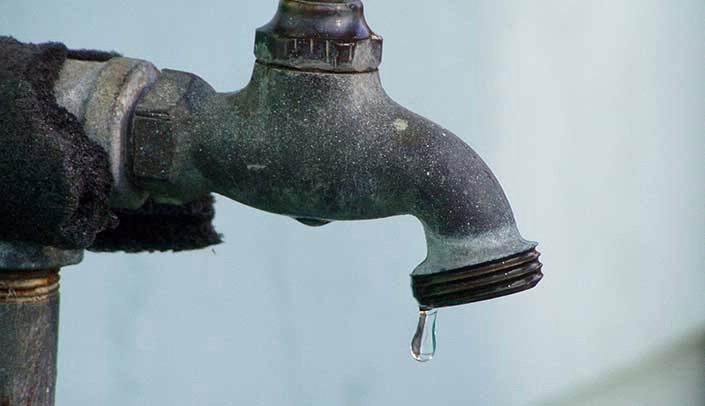If you’ve been watching the news, you’ve heard a lot about water. It’s easy to forget how valuable water is to us, as we can turn on the faucet and get fresh, clean water whenever we want it. If we were under drought restrictions, had contaminated water, or had to haul it from a nearby reservoir, our attitudes would quickly change.
UNMC/Nebraska Medicine recently announced their commitment to reduce water use to “Net Zero Water.” This does not mean we won’t use any water. We will still use water, we’ll still have green space, and we’ll always recommend washing hands!
The goal means that by 2030, we’ll only use as much water as falls on our property in an average year. As of right now, that would mean we would use 104 million gallons of water per year. That’s a lot of water, enough to fill 160 Olympic swimming pools. Still, it’s a 55 percent reduction from our 2010 baseline, and 33 percent reduction from where we are now. So we have some work to do.
Reductions at home are important too. Did you know most of us use 20 gallons of water per shower? Or that the EPA estimates Nebraska to be one of the top seven states for water use per capita?
Here are some simple things you can do to have a sizable impact:
- Turn faucets completely off — no dripping — especially in labs.
- Report drippy faucets and leaks, inside or outside.
- Scrape or wipe instead of rinsing recyclables. Rinsing isn’t necessary.
- Buy faucets and fixtures with the Water Sense label.
- Take a five-minute shower. Need a fun timer? Check out the box on the side for a list of five-minute-long songs you can listen to while you shower.(Don’t dance — you might slip!)
- Turn the faucet on part way, only using the pressure you need. Turn it off when brushing teeth.
- Don’t run your sprinkler system when it’s raining, make sure programs are correct and check sprinkler heads to make sure they are watering plants, not concrete.
- Or, forgo the grass! Look into low-water-use plants and groundcover; consider xeriscaping.
- Build a rain barrel. It’s easy, inexpensive, and provides free water for your garden or to wash your car. Did you know that more than 600 gallons of water will run off a 1,000 sq. ft. roof in a 1-inch rainfall?

Your "rinsing isn't necessary" link contains the following instructions: 3. At least two days per week, rinse your lunch containers, flatten your cardboard and RECYCLE the container(s) in the correct bin.
Hi Rebecca,
Sorry for the confusion, and thanks for taking the time to click on the link and for letting me know! I've updated the page to say "please empty food and liquid from your lunch containers prior to recycling (to reduce odor)" so that it matches our plastic and metal recycling descriptions.
Just to clarify, recyclables don't need to be clean in order to be recycled. Food/drink residue will burn off when the plastic is melted. However, a lot of food/drink in a container can cause the bin to smell and could attract unwanted pests. We ask that the bulk of the food be removed (i.e. unfinished food or drink) and this can be done by emptying the bottle in the sink and scraping the dish with a utensil or using the napkin you dined with to wipe it out. The containers do not need to be rinsed clean.
I hope that helps, but if further clarification is needed by anybody, I’m happy to answer those questions here or at livegreen@unmc.edu
Thank you!
Melanie
You can also install a dirt-cheap stopcock on your shower arm to shut the water off while you shampoo/lather up, and turn it back on only when you really need the water. Then you can take all the time you want washing without wasting water.